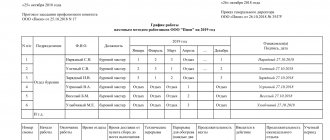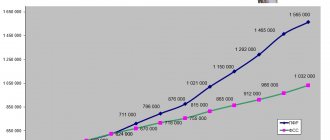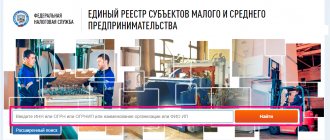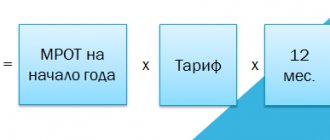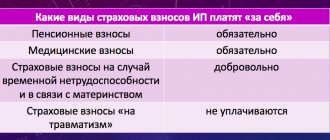Working hours and payments while on watch
Working conditions on a rotational basis are separately identified within the framework of labor relations carried out in remote places or areas with special natural conditions (Article 297 of the Labor Code of the Russian Federation). The mobile type of work is used to cover the shortage of labor resources. The remote nature is recognized when the work is located at a significant distance from the place of residence of the employees or the location of the enterprise.
Employee benefits for rotational work differ from those for traditional shift work. Features of compensation for special conditions:
- The work schedule is permanent, agreed upon by the parties to the contract. A shift is not recognized as time spent on a business trip issued in connection with the fulfillment of a one-time order from the manager.
- Employees on duty outside their place of residence are not entitled to daily payments.
- Employees are not paid field pay or additional payments for the mobile nature of their work.
Instead of amounts compensating for a special labor regime, individuals receive from employers an allowance for working on a shift basis. The bonus is paid in lieu of daily allowance for each calendar day of work, downtime, breaks between shifts and periods of travel.
Shift method of work. Personal income tax, corporate income tax
(Letter of the Ministry of Finance of the Russian Federation dated September 2, 2011 No. 03-04-06/0-197)
The Ministry of Finance of the Russian Federation clarified the issues of taxation of personal income tax and corporate income tax on the income of organization employees working on a rotational basis
.
In accordance with Art. 297 Labor Code of the Russian Federation
The rotation method is a special form of carrying out the labor process outside the place of permanent residence of workers, when their daily return to their place of permanent residence cannot be ensured.
Personal income tax of the Labor Code
of the Russian Federation does not establish the obligation of the employer
pay for workers' travel to and from work.
At the same time, par. 10 clause 3 art. 217 Tax Code of the Russian Federation
exemption from personal income tax is provided for amounts reimbursed by an organization for certain expenses of employees on a business trip.
At the same time, it has been established that a similar procedure for taxation of amounts of reimbursement of these expenses also applies to payments made to persons who are under the authority or administrative subordination of the organization
.
Thus, if upon arrival at the gathering place the workers are under the administrative subordination of the organization, compensation to the employees for the cost of travel from the gathering place to the place of work and back is exempt from personal income tax.
in accordance with
paragraph 3 of Art.
217 Tax Code of the Russian Federation .
Art. 297 Labor Code of the Russian Federation
it is stipulated that workers involved in work
on a rotational basis
, while at the work site,
live
in rotational camps specially created by the employer, which are a complex of buildings and structures designed to ensure the livelihoods of these workers while they perform work and rest between shifts, or in hostels and other residential premises adapted for these purposes and paid for by the employer.
Clause 3 art. 217 Tax Code of the Russian Federation
provides for
an exemption from taxation of amounts reimbursed
by an organization for the expenses of employees on a business trip
for renting housing
.
Employer payment for employee accommodation
involved in work
on a rotational basis
, provided for
in Art.
297 of the Labor Code of the Russian Federation
is similar
in nature to reimbursement of expenses of employees for hiring residential premises associated with business trips, as well as business trips of employees whose permanent work is of a traveling nature.
Thus, the amount of payment by the accommodation organization
workers performing work on a rotational basis in the cases provided for
in Art.
297 of the Labor Code of the Russian Federation ,
are not subject to personal income tax
on the basis of
clause 3 of Art.
217 Tax Code of the Russian Federation .
According to Art. 302 Labor Code of the Russian Federation
employees performing work on a rotational basis are paid
a bonus for the rotational method of work in lieu of daily allowance
for each calendar day of stay at the place of work during the shift period, as well as for the actual days of travel from the location of the employer (collection point) to the place of work and back .
Employees of organizations not related to the public sector are paid a bonus for shift work in the amount and manner established
a collective agreement, a local regulatory act adopted taking into account the opinion of the elected body of the primary trade union organization,
an employment contract
.
In accordance with paragraph 3 of Art. 217 of the Tax Code of the Russian Federation are not subject to personal income tax
compensation payments
established by the legislation of the Russian Federation, legislative acts of the constituent entities of the Russian Federation, decisions of representative bodies of local self-government (within the limits established in accordance with the legislation of the Russian Federation), in particular, related to the performance of labor duties by an individual.
Taking into account the above, compensation payments
, provided for
in Art.
302 of the Labor Code of the Russian Federation , made to persons performing work
on a rotational basis
, in the amount established by the local regulatory act of the organization,
are not subject to personal income tax
on the basis of
clause 3 of Art.
217 Tax Code of the Russian Federation .
Corporate income tax
In accordance with paragraphs 12.1 clause 1 art. 264 Tax Code of the Russian Federation for other expenses
related to production and sales include the taxpayer's expenses for delivery from the place of residence (collection) to the place of work and back of employees employed in organizations that operate on a
rotational basis
or in field (expeditionary) conditions. These expenses must be provided for in collective agreements.
Thus, the costs
of an organization carrying out work on a rotational basis,
the travel costs of workers
from the place of assembly (location of the employer) to the place of work can be taken into account when forming the tax base for income tax,
if payment for the employee’s travel is provided for by a collective agreement
.
Rent
for the use of buildings and structures intended to support the livelihoods of workers involved in work
on a rotational basis while they are at the
work site,
is taken into account
for profit tax purposes on the basis
of paragraphs
10 p. 1 art. 264 Tax Code of the Russian Federation .
In accordance with Art.
255 of the Tax Code of the Russian Federation, the taxpayer’s expenses for wages
for profit tax purposes include any accruals to employees in cash and (or) in kind, incentive accruals and allowances, compensation accruals related to work hours or working conditions, bonuses and one-time incentive accruals, expenses, related to the maintenance of these workers, provided for by the norms of the legislation of the Russian Federation, labor agreements (contracts) and (or) collective agreements.
Therefore, if
a collective agreement, a local regulatory act adopted taking into account the opinion of the elected body of the primary trade union organization, an employment contract
provides for the payment of an allowance for rotational work
for each day of stay at the places of work during the shift period, then in accordance with
clause 3 of Art.
255 of the Tax Code of the Russian Federation, such costs may relate to labor costs and reduce the tax base for income tax.
Insurance premiums
The Ministry of Finance of the Russian Federation is not authorized to provide explanations on the payment of insurance contributions to state extra-budgetary funds.
Therefore, let us turn to the Federal Law of the Russian Federation of July 24, 2009 No. 212-FZ.
According to paragraphs. “and” clause 2, part 1, art. 9 of Law No. 212-FZ are not subject to insurance premiums
compensation payments
established by the legislation of the Russian Federation, legislative acts of the constituent entities of the Russian Federation, decisions of representative bodies of local self-government (within the limits established in accordance with the legislation of the Russian Federation), related, in particular, to the performance by an individual of labor duties, including in connection with relocation to work in another area.
The Ministry of Health and Social Development of the Russian Federation, in a letter dated February 27, 2010 No. 406-19, explained that compensation payments made to persons performing work on a rotational basis
(
surcharge
in lieu of daily allowance), by virtue of clause
“and” clause 2, part 1, art. 9 of Law No. 212-FZ are not subject to insurance premiums
.
Allowance for special work regime
A shift is understood as a period covering the time of performing remote work and the break between shifts. The duration of the shift period should not exceed more than a month, or, less often, have a duration of no more than 3 months (Article 299 of the Labor Code of the Russian Federation).
Employees are awarded a special bonus for each day of the periods:
- Movements from the assembly point to the watch point.
- Performing work at a remote site, including breaks in accordance with the schedule.
- While on the road from the place of duty to the territorial unit of residence or location of the employer.
- Downtime in work or travel due to weather conditions or the fault of the carrier.
The amount of the bonus depends on the category of complexity or responsibility of the work. One work team may contain positions with different amounts of allowances. For positions with the same responsibilities, additional payments are equal.
| Shift category | Adjusting the amount of premium |
| Federal level | Federal regulations |
| Subjects of the federation | Regional laws and regulations |
| Local level | Municipal orders and acts |
| Entity | Internal documents of the company - collective agreement (adopted in agreement with representatives of the work collective or trade union body), employment contract and other acts |
The minimum or maximum amount of the premium paid by commercial structures is not limited by the rules. When determining the size, employers are guided by the economic feasibility of costs.
Results
An allowance for shift work is guaranteed by the norms of the Labor Code of the Russian Federation for those employees who perform their job functions while located far from their place of permanent residence.
This bonus should be considered a compensation payment, for which, according to current legislation, the regional coefficient and special percentage bonuses are not charged. In addition, insurance premiums are also not charged on it, and the surcharge itself reduces the tax base for income tax under the conditions listed in Art. 255, 264 Tax Code of the Russian Federation. You can find more complete information on the topic in ConsultantPlus. Free trial access to the system for 2 days.
The amount of allowance for watchkeeping conditions
Collective and labor agreement documents establish the amount and conditions for the provision of bonuses (Article 302 of the Labor Code of the Russian Federation). The mandatory condition for establishing the amount of additional payment applies to commercial enterprises. When determining the value, the opinion of the representative body of employees of the enterprise is taken into account. The size of the allowance for budget financing enterprises is determined by legislative acts.
Compensation for expenses during watchkeeping in the form of an allowance is paid only to persons admitted by law to a special labor regime. Restrictions apply to minors, pregnant women, single mothers with young children and persons for whom the climate of the area is contraindicated for health reasons. Payments of allowances to persons with watch-keeping restrictions are illegal. Some features of the calculation of the premium have been established.
| Accrual conditions | Peculiarities |
| Basic value for determining the amount of the premium | The additional payment is provided primarily in the amount of a percentage of wages or salary. Accruals in a fixed amount are made less frequently due to the complexity of accounting |
| Days of the month taken into account for calculating the amount | The total payment amount is calculated not in working days, but in calendar days |
| Requirement to perform duties | The amount of payment does not reflect the fact of work being carried out or its absence during forced downtime |
An example of calculating the amount of the premium. The company has rotation workers on its staff. Internal documents determine the amount of the bonus to be 50% of the salary. Employee M. with a salary of 25,000 rubles in the month of April worked 20 days on a rotation basis, including travel time. When calculating remuneration, the bonus for the shift in April was calculated: N = 25,000 / 30 x 20 x 50% = 8,333.3 rubles.
Procedure for calculating the allowance
The bonus for shift work is paid for each calendar day of stay at the work site during the shift period.
Also, the bonus is given for the actual days of travel from the location of the employing organization (collection point) to the place of work and back.
The procedure for calculating this bonus depends on the remuneration system that is established in the organization.
The work of company employees can be paid based on the established staffing schedule:
- from hourly rates;
- from daily rates;
- from the monthly salary (monthly rate).
If an employee of an organization has an hourly wage rate, then the monthly tariff rate necessary to determine the amount of bonus for working on a rotational basis is calculated as follows.
Formula for calculating the monthly tariff rate
In this case, the amount of the premium is determined by the formula.
Formula for calculating the bonus amount
EXAMPLE.
HOW TO CALCULATE AN INCREASE FOR WORK ON A ROTARY METHOD BASED ON THE HOURLY RATE An employee of Passive LLC, Petrov, works on a rotational basis.
In August, Petrov worked 272 hours (22 days). Petrov’s hourly rate is 30 rubles/hour. For work on a rotational basis, Petrov is given a bonus of 30% of his monthly tariff rate. In August, 176 working hours (with a 40-hour work week). Petrov’s monthly tariff rate will be: 176 hours × 30 rubles/hour = 5280 rubles. The amount of the allowance will be: 5280 rubles. × 30% = 1,584 rubles. Petrov’s basic salary for August will be: 272 hours × 30 rubles/hour = 8,160 rubles. The total amount of wages and bonuses for Petrov’s shift work will be: 8,160 rubles. + 1584 rub. = 9744 rubles. The Liability accountant must make the following entries: DEBIT 20 CREDIT 70
- 9744 rubles.
(8160 + 1584) – Petrov’s salary and bonus for shift work were accrued; DEBIT 70 CREDIT 68 subaccount “Calculations for personal income tax”
- 1061 rubles.
(8160 × 13%) – personal income tax is withheld from the basic salary; DEBIT 70 CREDIT 50-1 - 8683 rub. (8160 – 1061 + 1584) – Petrov’s salary and bonus for shift work were issued from the cash register.
Expenses covered by the allowance
The list of reimbursable expenses is stipulated in the internal documents of enterprises. Persons do not have to provide reporting documents to the manager regarding expenses incurred. Costs associated with performing shift duties include:
- The cost of travel to the place of performance of duties and back, to the locality of residence, baggage fees.
- Target fees, commission fees, travel expenses to the station or airport.
- Amounts paid for obtaining a passport, visa, customs fees.
- Expenses for renting a room in a hotel or hostel. The employer is obliged to create rotational camps for employees to live. In the presence of specially equipped places, the cost of renting housing is not compensated.
- Other similar expenses associated with a special labor regime.
Important! The bonus is not considered part of the salary, but is recognized as a compensation payment in accordance with the terms of Art. 164 Labor Code of the Russian Federation.
Withholding of personal income tax from the amounts of the bonus received
The Ministry of Finance clarified the procedure for taxation of payments to rotation workers in letter No. 03-04-05/7999 dated 02/09/2022.
According to the explanations of specialists from the Ministry of Finance, bonus payments to shift workers are recognized as compensation provided for special working conditions. Amounts are exempt from income tax on the basis of the provisions of paragraph 3 of Art. 217 Tax Code of the Russian Federation. To apply the exemption, you must have the following grounds:
- Non-taxable amounts for commercial enterprises must be established by regulations or internal documents of the enterprise. The amounts are confirmed by the representative or trade union body of the employees.
- Payments to rotational workers from state funding are established by budget standards at the appropriate level.
Employers use the allowance to cover expenses, but must not make payments beyond the cap. According to experts from the Ministry of Finance, the amount of the bonus should be comparable to the expenses of employees during the shift period
Deputy Director of the Department V.A. Prokaev (letter dated July 13, 2022 No. 03-04-06/49149).
A significant excess of the amount over costs may lead to additional attention to the accounting of the enterprise and the adoption of a decision by the inspectors of the Federal Tax Service on additional assessment of income tax.
Guarantees for shift workers
Citizens employed in organizations to work on a rotational basis are entitled to social guarantees and material compensation: a salary supplement, the use of regional coefficients, preferential meals, and housing. Let's look at each of them in more detail.
Providing housing while working
It is the direct responsibility of the employer to provide a place for shift workers to live during the period of their work. For this purpose, rooms in dormitories can be allocated, special villages can be organized, including a complex of buildings located in an area with developed infrastructure. Employees do not have to pay for housing.
If the manager is unable to provide staff with housing and they have to rent apartments, this must be reimbursed by the organization in full. There are situations when there are organized settlements, but the employees themselves do not want to live in them, preferring to rent apartments. In this case, the employer is not obliged to pay compensation unless this is provided for by the internal documents of the enterprise.
Allowances
Supplements for shift workers are provided instead of daily allowances. The amount and calculation procedure are regulated by regulations of the constituent entities of the Russian Federation or organizations at the place of employment. There are several options here:
- Payment of a fixed amount for each day of work;
- Additional payment as a percentage of the salary.
The last method of calculation is most often used: the salary is set for the period worked, and an additional payment is paid to it. The size varies by region, but the following are commonly used:
- 75% of the salary for employees working in the Far North and equivalent areas;
- 50% for those working in Siberia and the Far East;
- 30% for employees in other territories.
Example No. 2: calculating bonuses for rotational workers
For a month of working on a shift, citizen Sibiryakov O.E. 100,000 rubles were accrued. along with salary and other benefits. He worked in St. Petersburg.
The amount of the supplement will be:
100,000 x 30% = 30,000 rub.
In total, they will pay out 130,000 rubles.
If, under similar conditions, an employee worked in the Far North, the regional coefficient would be additionally applied, and the bonus would be calculated only after it was accrued.
Let's look at the example of the coefficient 1.2:
100,000 x 1.2 = 120,000 rub.
120,000 x 75% = 90,000 rub. – allowance.
120,000 + 90,000 = 210,000 rub. - total payable.
“The level of wages when working on a rotational basis is more interesting to people than wages in their regions under standard forms of employment. That is why this area is in high demand, because salaries here exceed 100,000 rubles.”
A. Veterkov, head of the job search service rabota.ru.
Regional coefficient
If employees work in the Far North, salaries are calculated taking into account the regional coefficient, established individually for each region. They are also entitled to percentage bonuses for shift work.
What factors are taken into account when calculating additional payments:
| Additional payment after the first year of work in the North | 10% |
| Increase in surcharge for each subsequent year | Annually by 10% until reaching 50% |
| Additional payment for citizens under 30 years of age living in the North for at least one year | 10% for every six months of work until reaching 50% |
Payment for days while on the road
According to Art. 302 of the Labor Code of the Russian Federation, days of travel are subject to payment and are included in the salary or tariff rate. This includes travel time from the place of residence to the general collection point, and from the collection point to the actual place of work. Funds are allocated from the budget of the employing organization.
Meals for shift workers
Labor legislation does not contain rules obliging employers to provide free meals to shift workers, but this obligation is in Resolution of the USSR State Committee for Labor No. 794/33-82. There are two options here:
- Reimbursement by the employer for food costs;
- Providing free food by concluding an agreement with catering organizations.
In the latter case, employees only need to come to the establishment and receive food, and the money for this will be allocated by the employer.
Taxation of premiums on insurance premiums
Benefits paid to employees are subject to insurance premiums. The exception is the amount of compensation in the form of bonuses provided to rotational workers. Tax-exempt payments are made upon reimbursement of expenses arising in connection with the performance of labor duties (clause 2 of Article 422 of the Tax Code of the Russian Federation).
The amounts provided to individuals to compensate for expenses and listed in clause 3 of Art. 217 Tax Code of the Russian Federation. The condition for tax exemption is the determination of the amount of payment in contracts or other internal documents of the enterprise.
simplified tax system
Allowances for shift work are taken into account in expenses if the organization pays a single tax on the difference between income and expenses (subclause 6, clause 1, article 346.16 of the Tax Code of the Russian Federation). Supplements can be taken into account at the time of their payment (subclause 1, clause 2, article 346.17 of the Tax Code of the Russian Federation).
If an organization has chosen income as the object of taxation, the payment of surcharges will not affect the calculation of the single tax. Such organizations do not take into account expenses, including expenses for wages (and allowances for it) (clause 1 of Article 346.14 of the Tax Code of the Russian Federation). But paid insurance premiums can be taken into account as part of the deduction.
Mistakes made when taxing allowances
Error No. 1. The amount of the bonus constitutes a significant part of the payments to rotational workers. The position of adding bonuses to wages with the inclusion of amounts in the composition of average earnings is erroneous. Compensation for expenses for the conditions of watchkeeping is compensation and is not taken into account when calculating bulletins, vacation pay and other payments based on average earnings.
Mistake No. 2. Employers have the right to hire persons with foreign citizenship. When concluding a contract for work under shift conditions, it is necessary to take into account the requirements for the location of persons. Temporarily staying or residing foreigners have the right to work in the region where the patent, permit or other document was issued. The restriction does not apply to the performance of an official assignment as part of a business trip of a foreign national.
Exceptions are highly qualified specialists who have the right to work in several documented regions, and citizens of the EAEU who work legally without obtaining a permit.
Answers to common questions
Question No. 1. Are northern coefficients taken into account when calculating the premium?
The northern coefficient is not calculated on the amount of the watchkeeping allowance. The increasing factor is applied separately from the amount of additional compensation.
Question No. 2. Can an employer apply a rotational labor method to a group of people, a team, or has the right to draw up an agreement with one person?
The legislation does not establish a requirement to create a team to apply a rotational work method. Sending one specialist to work on a shift basis is not considered a business trip. A remote work agreement can be concluded with one employee.
Why is the shift method interesting from a tax point of view?
Remuneration for workers on a rotational basis is divided into two parts:
- salary;
- compensation.
Personal income tax and insurance premiums are paid only from the salary. They are not paid from compensation. In this case, compensation is taken into account in expenses when calculating income tax.
This work system is more profitable for the employer than the usual salary + bonus, because Personal income tax and insurance premiums are paid.
A business that is thinking about a shift method has a question: how “impudent” can you be? What should be the ratio of salary and compensation so that the inspection does not find fault?
There are no standards. Sometimes a half-and-half scheme is used: for example, 50 thousand rubles salary and 50 thousand rubles compensation. But no one forbids making a salary in the amount of the minimum wage, and compensation of 80 thousand rubles, for example. Let us repeat, there are no norms “salary should be this and that, but compensation should be such and such.” This is confirmed by judicial practice.
The pension fund demanded that the court recognize that compensation cannot be significantly more than the salary, but the court did not agree:
“The fund’s argument about the significant amount of the premium for the rotation method in support of the conclusion that the applicant created a fictitious document flow is rejected by the judicial panel as unfounded.
The amount of the bonus for the rotation method is established by the legal acts of the applicant, employment contracts, this issue falls entirely within the competence of the employer, the state has no right to interfere in this process and regulate it. The size of such an allowance does not indicate that the use of the rotation method is unreasonable, nor does it indicate that the increase for the rotation method is not a compensation payment and is subject to insurance premiums and does not indicate the applicant’s dishonesty.”
Resolution of the Arbitration Court of the Volga District dated September 30, 2019 No. F06-35268/2018 in case No. A65-28204/2017.
